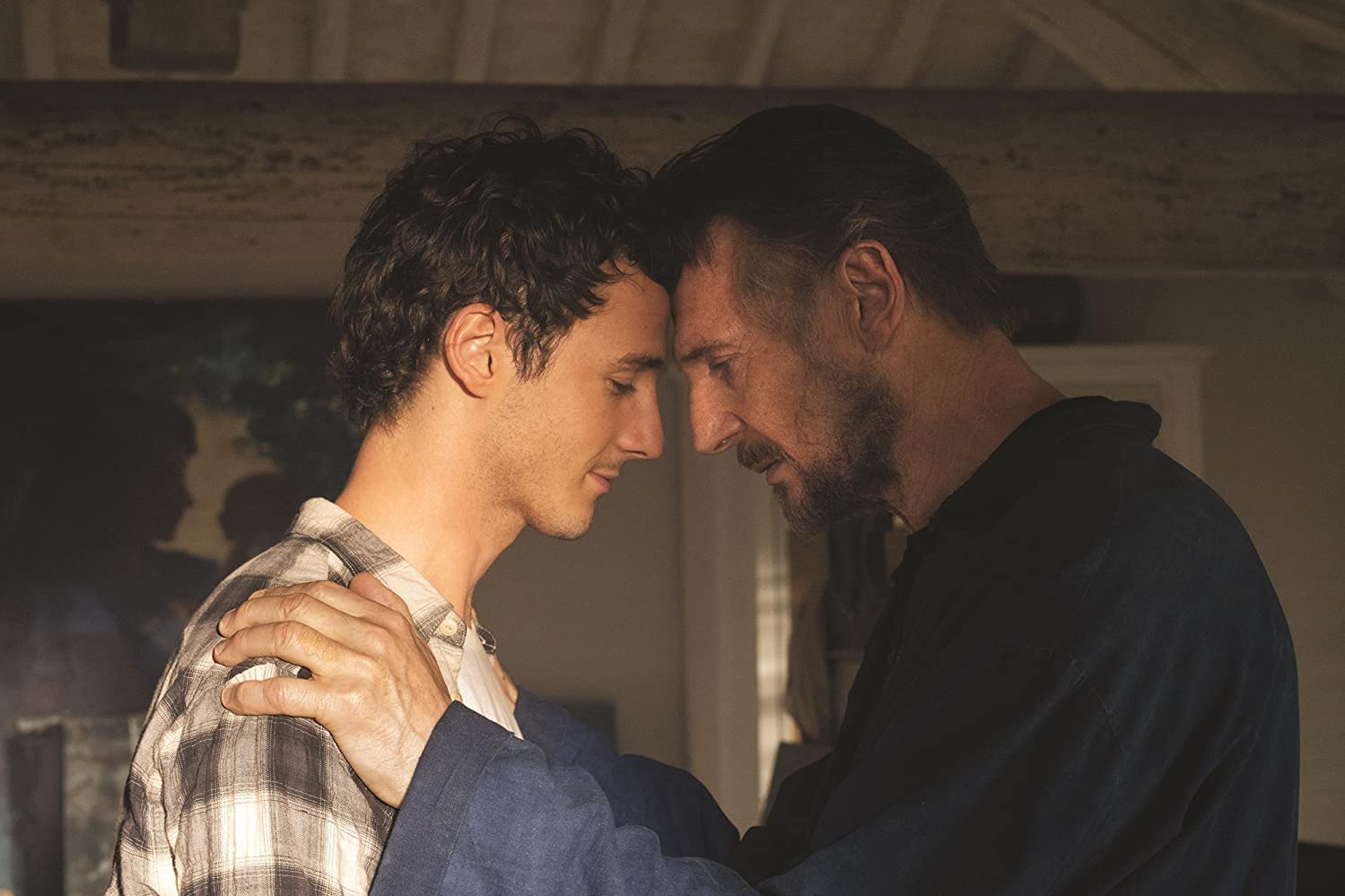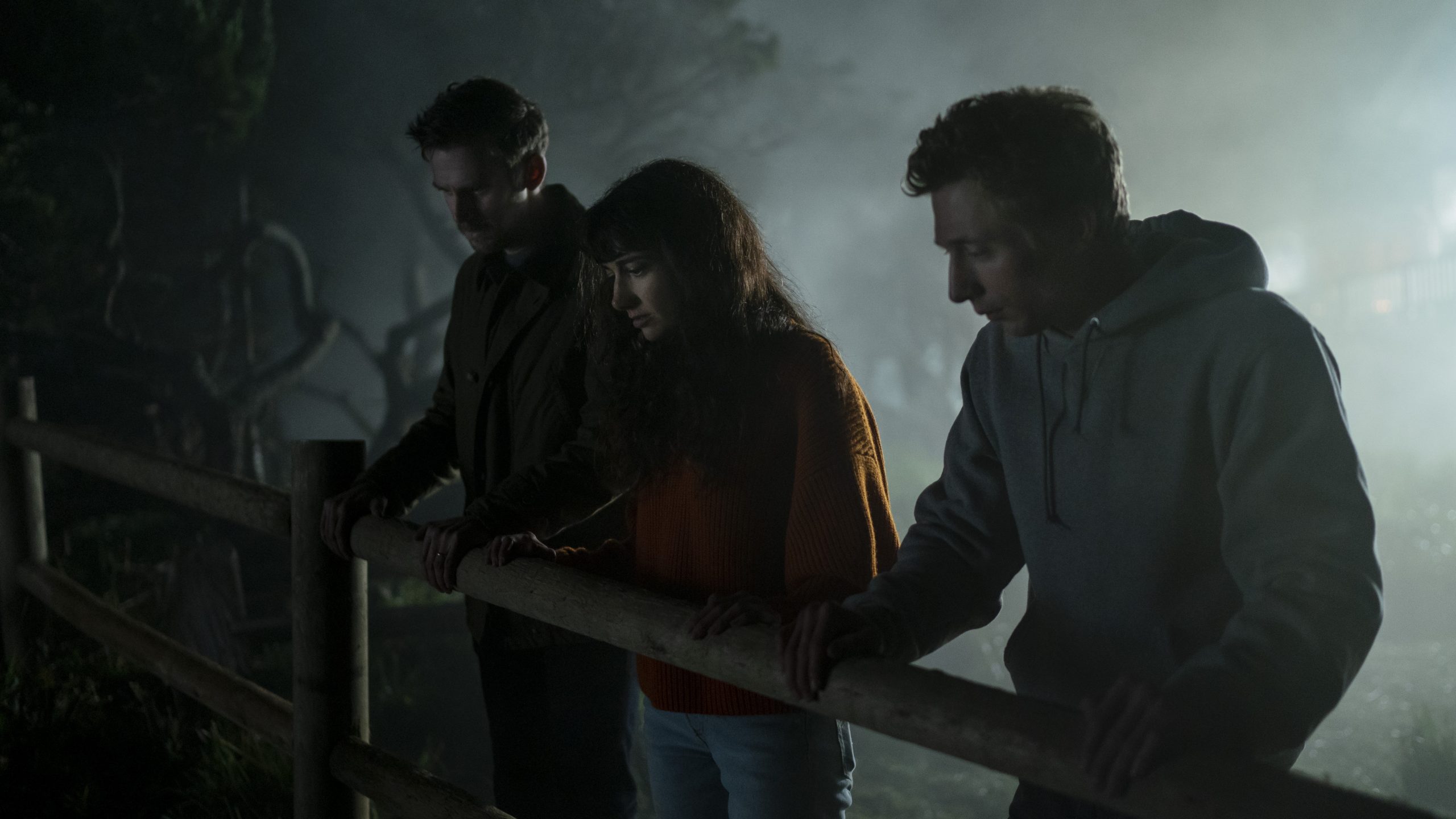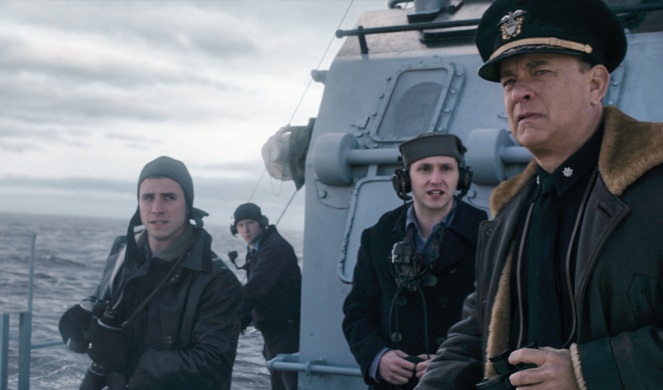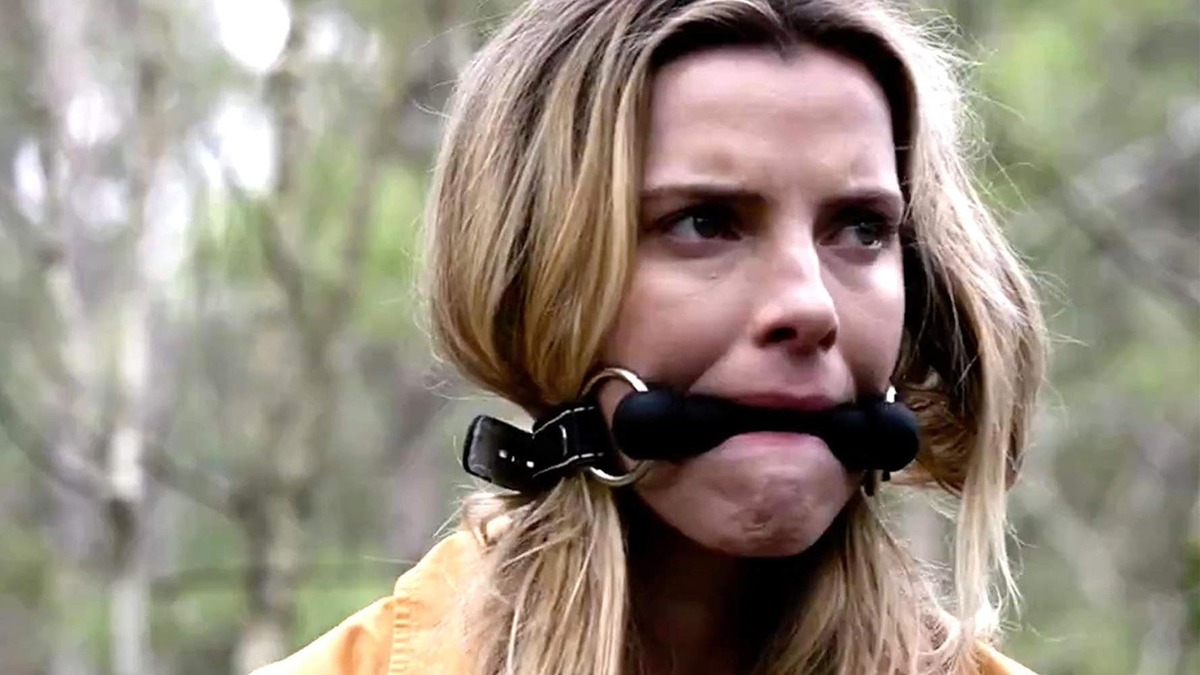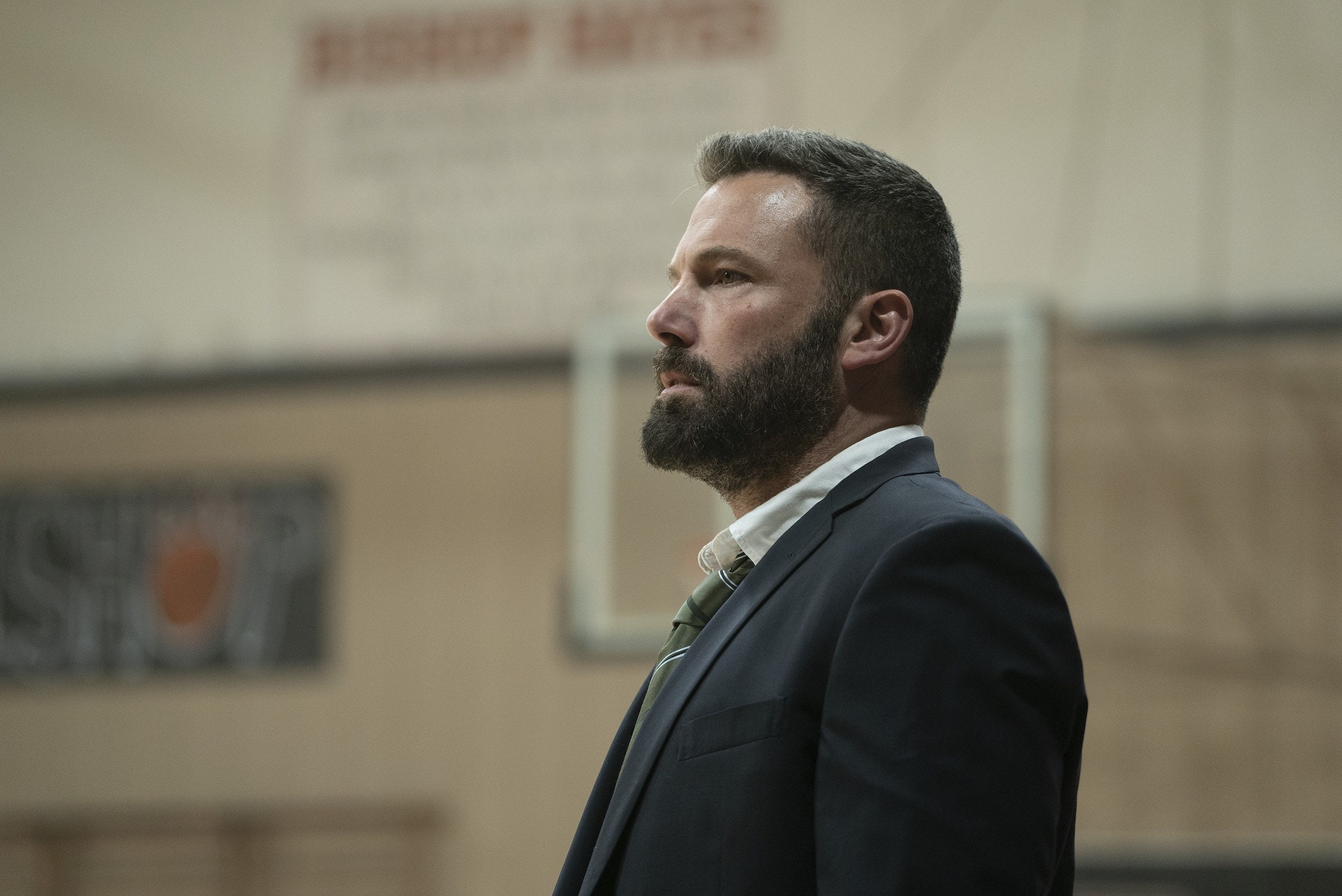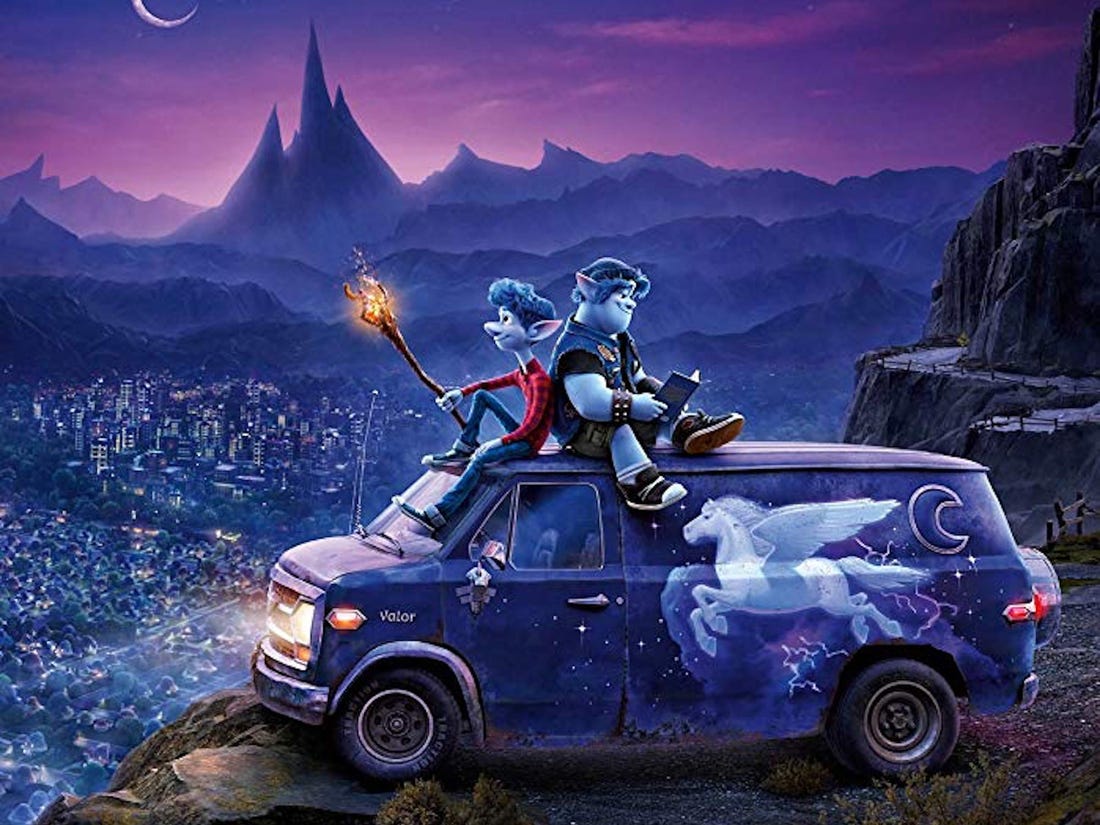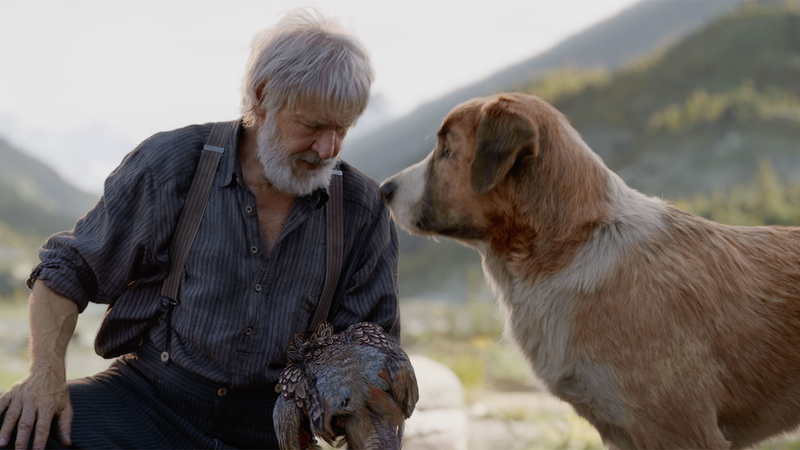Each year the Seattle International Film Festival (SIFF) screens hundreds of feature films, documentaries, short films, and more from all around the world. This year the largest and most highly attended festival in the United States will run from May 11-21 in the Seattle area with select streaming encore screenings online from May 22-28. This year’s festival features 264 films from 74 countries/regions around the globe: 92 features, 45 documentaries, 125 short films, and 2 secret films. 23 of these films are world premieres, 30 are North American premieres, and 13 are U.S. premieres. 52% of films are directed by female identifying or nonbinary filmmakers, 69% are from first- or second-time filmmakers, and 73% don’t currently have U.S. distribution. The festival will screen several highly anticipated films such as “Past Lives”, “Theater Camp”, “I Like Movies”, and “Year of the Fox”. Suffice it to say, all 264 films won’t be covered here, but in addition to our podcast coverage of the festival you will find capsule reviews of a wide variety of films across many genres (some of which are re-purposed from previous viewing at earlier film festivals). Check back often for new capsule reviews as we cover the 49th Annual Seattle International Film Festival. (Reviews are in order of film’s earliest showing.)
Must See: THE EIGHT MOUNTAINS, PAST LIVES, THEATER CAMP, STEPHEN CURRY: UNDERRATED, 20 DAYS IN MARIUPOL
Highly Recommended: THE GRAB, PASSAGES, I LIKE MOVIES
Worth Watching: SCRAPPER, PUNDERNEATH IT ALL, MY ANIMAL
Skip: JAMOJAYA, YEAR OF THE FOX
PAST LIVES (dir. Celine Song)

Rating:
This is an achingly emotional Korean relationship drama about fate, pursuing dreams, regrets, and finding happiness where you are. The story follows Na Young (Greta Lee) who we meet as a young girl on the verge of immigrating with her parents to America in support of her father’s career in filmmaking. She has a crush on local boy Hae Sung (Yoo Teo) and they manage to spend some meaningful time together before she’s gone. From there, the story jumps forward two different times – once 12 years later where Na, now using the name Nora Moon, and Hae Sung reconnect via Skype and social media, and the other another 12 years down the road when Nora is now married to fellow artist Arthur (John Magero). The delicate handling of Nora’s relationships with (and feelings for) the two men, as well as theirs towards hers and Arthur’s toward Hae Sung, allows for the audience to really sink into this challenging dynamic. It’s a stunning debut from director/writer Celine Song that may be slow and quiet but is deeply complex, with three exceptionally patient and nuanced performances from Lee, Teo, and Magaro. (Screened in January 2023 during Sundance Film Festival)
Showtimes: May 11 (Paramount Theater) – Opening Night Gala
THE EIGHT MOUNTAINS (dir. Felix van Groeningen and Charlotte Vandermeersch)

Rating:
Pietro and Bruno, two 12 year-old boys who meet merely by chance. Bruno lives in the Alpine village of Grana and is the only child left after most of its inhabitants (including Bruno’s father) abandoned the mountain life for more lucrative work near larger towns. Pietro is on a summer getaway with his mother from their usual lives in the bustling city. Perhaps out of necessity, perhaps because they are truly two souls meant to discover one another, the two young boys instantly connect and set off on adventures together. They grow closer and closer as summer visits pass, but eventually things change.
Over the course of 2.5 hours, directors Felix van Groeningen and Charlotte Vandermeersch, accompanied by one of the most perfectly fitting soundtracks that I’ve ever heard from Daniel Norgren, tell us the moving story of these two men. Of their individual struggles with their fathers and legacy, of their romantic relationships, of their dreams, of their success and failures, of the bigness and smallness of their lives, and most of all of how their worlds remain inseparable ever since that initial summer meeting. Being set in the mountains makes this instantly a visually stunning feature, too, with some of the most beautiful photography you’ll ever see in a narrative film. The valleys, the lakes, the waterfalls, and of course the snowy peaks – the immensity of it all mixed with the simplicity and peace it can bring are explored to both heartbreaking and heartwarming effect.
It’s rare that I watch such a lengthy drama and come away feeling like I could have spent longer in its world, but such was the case with THE EIGHT MOUNTAINS. The characters are so rich, the environments so soothing and awe-inspiring… I didn’t want it to end. I’m not sure if those without a love for the outdoors will come away quite as spellbound as those of us mesmerized by what some of the earth’s highest places have to offer, but I find it difficult to think that anyone could get to know Bruno and Pietro as deeply as we do and not find themselves responding emotionally to this tender yet painful true story of a loving male friendship. (Screened in January 2023 during Sundance Film Festival)
Showtimes: May 12 (Shoreline Community College, May 13 (SIFF Cinema Egyptian)
20 DAYS IN MARIUPOL (dir. Mstyslav Chernov)

Rating:
War is hell, especially when you didn’t ask for it and it comes not on a battlefield but directly into your city. The crisp, no frills, day-to-day accounting here of Russian atrocities committed against Ukraine is so gut-wrenching. Journalism is vitally important and I’m grateful we live in a time when brave reporters like those here can provide proof of historical events so that they may not be rewritten by those who would wish to twist the truth. The exhausted and heartbroken tone of the narration really got me, too. I cannot imagine witnessing such massive agony and devastation first-hand. (Screened in January 2023 during Sundance Film Festival)
Showtimes: May 12 (SIFF Cinema Uptown), May 19 (Ark Lodge Cinemas), May 22-28 (SIFF Streaming)
SCRAPPER (dir. Charlotte Regan)
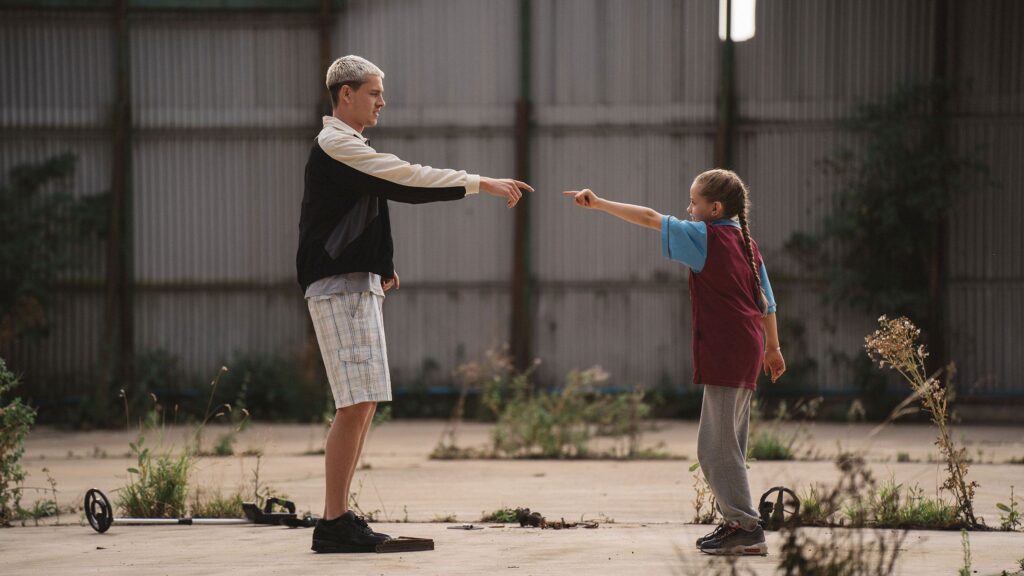
Rating:
Lovely relationship and performances between Lola Campbell and Harris Dickinson. As a Dad-girl, I can’t help but be drawn to stories about fathers and daughters. I could have done completely without the directorial visual touches, honestly. The drama was plenty for me. It’s a simple bittersweet story told beautifully and often quite funny. Quite a charmer. (Screened in January 2023 during Sundance Film Festival)
Showtimes: May 12 (Ark Lodge Cinemas), May 15 (SIFF Cinema Uptown)
STEPHEN CURRY: UNDERRATED (dir. Peter Nicks)

Rating:
It had to be awfully tempting for director Peter Nicks to just go the traditional sports biography route of making an extended highlight reel, cutting frequently to well-known basketball talent who would wax poetic about Steph’s incredible skill, backed by montages of endless difficult three-pointers and layups. His subject is arguably the greatest shooter in the history of the sport, after all. But Nicks wisely avoids that route, and with some brilliant editing choices by J.D. Marlow, he and his filmmaking team crafted a heartfelt, honest journey beginning with Steph’s unlikely rise despite his physical attributes and going through his playing career (thus far) and his decision to fulfill a promise he made to his mother about finishing his college degree, pointing out the triumphs and challenges of all three.
Of course, it is full of outstanding archival footage that shows his immense talent, but there’s quite a bit of unflattering plays shown as well, reminding us that you don’t achieve the level of success that Curry has without a lot of work, support, and determination. Two things that have always mattered most to Steph, family and team, are centered, and we see frequently how important they are in making him the man and player he is today. It’s not just about him, though – he truly believes in showering those around him with the credit, too.
In what is probably one of the best aspects of the documentary, the final act parallels the amazing Curry-led Elite Eight run by Davidson in 2008 and Curry’s fourth world title with the Golden State Warriors in 2022. It’s exceptionally well-crafted and riveting, even when you know the results already, and it further shows how much Steph has overcome being overlooked and doubted for his entire life. This is an earnest, energetic, crisply shot, expertly edited, scored, and directed character piece that is one of the better sports documentaries I’ve ever seen. (Screened in January 2023 during Sundance Film Festival)
Showtimes: May 13 (SIFF Cinema Uptown), May 14 (Shoreline Community College)
MY ANIMAL (dir. Jacqueline Castel)

Rating:
I didn’t mind that MY ANIMAL keeps its horror light and uses the werewolf staging less as an ongoing threat and more of a unique personal circumstance to be navigated for an already extreme outsider. I loved the slow-burn vibe and how it always felt like we were building to the point when Heather would inevitably snap. The dark, snowy isolation of its setting adds to the judgment and hatred that someone like Heather must deal with for being different, too. Castel’s confident, dreamy debut prefers to highlight its queer romance drama (including some sexy chemistry between the two women) and rely on the exceptional ambiance created by McCashin’s intoxicating camerawork and Miller’s synth score. Less bloody, but Carpenter-esque. (Screened in January 2023 during Sundance Film Festival)
Showtimes: May 13 (Ark Lodge Cinemas), May 17 (SIFF Cinema Egyptian)
YEAR OF THE FOX (dir. Megan Griffiths)
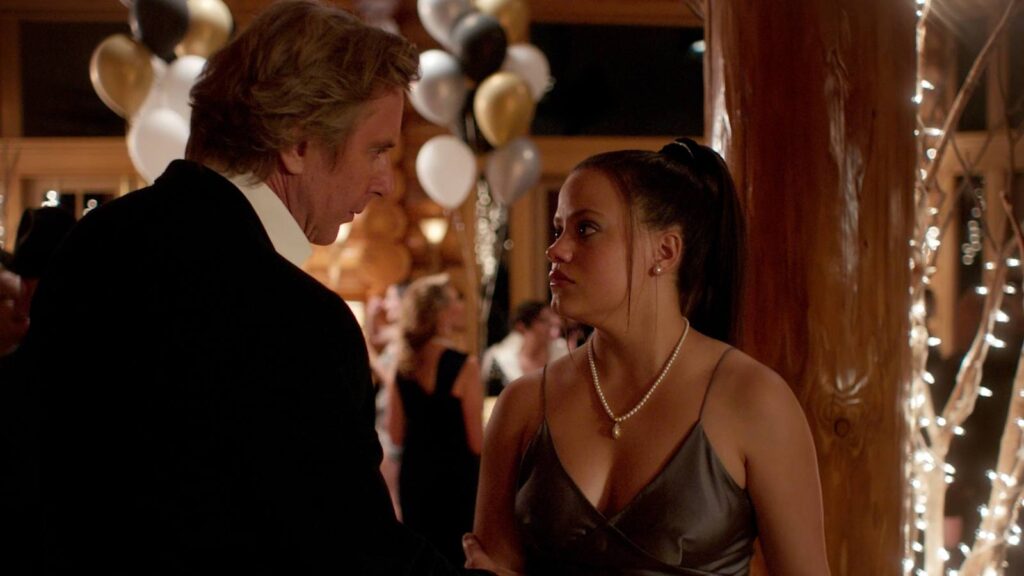
Rating:
A weirdly dark coming-of-age story about a teenage biracial adopted girl who is dealing with the divorce of her parents. Mom is going to Seattle to start anew while rich cheater Dad continues to live it up in Colorado. Ivy is caught between these two worlds, trying to figure out who she wants to be and what she wants out of her life. It starts off as a poor man’s version of a John Green YA novel adaptation and then takes a wild pivot into an EYES WIDE SHUT sort of situation where the Aspen elite are into all kinds of unruly behavior. The story handles this “shocking” transition so poorly and the entire film has constant insufferable narration from Ivy, explaining every single possible thought in her head in the most melodramatic way possible. There’s no enjoyable soundtrack throughout or filmmaker flourish, and all of the performances are somewhere between terrible and serviceable at best. I hate to be this hard on a Seattle-area director debuting her film at the local fest, but this is one of the most frustratingly aimless, bland, and unaffecting movies that I have ever seen in this genre and I’m very disappointed.
Showtimes: May 13 (SIFF Cinema Egyptian), May 14 (SIFF Cinema Uptown)
PASSAGES (dir. Ira Sachs)

Rating:
As character pieces about messy shitheads go, this is one of the more slight examples that I can remember. Franz Rogowski gives a tremendous performance as someone so completely selfish and blind to what love actually is. I was actively rooting against him and hoping that his toxic behavior would eventually be shunned by his former husband played by a very, very sad Ben Whishaw and the stunning goddess of a school teacher next door Adèle Exarchopoulos. There’s actually not a lot of sex and of the two major scenes they aren’t particularly explicit as far as nudity goes, but they are steamy and to their credit feel about as natural and un-Hollywood as you’ll see. What I do wish we got more of, though, was an understanding of who these people were outside of the relationship back and forth drama. There are bits and pieces that define them, but the story is so hyper-focused on the main plot – i.e. who will Tomas settle down with – that the other characters at times feel like just pawns. I guess thinking about it as I type, that’s pretty accurate to how he treats them, it just didn’t make for quite as connective of an experience as I might have had. Really loved the ending, too. Made a lot of the frustrating character actions we sit through feel worth it. Oh and the cinematography is lovely btw! (Screened in January 2023 during Sundance Film Festival)
Showtimes: May 14 (SIFF Cinema Egyptian), May 18 (SIFF Cinema Egyptian)
PUNDERNEATH IT ALL (dir. Abby Hagan)

Rating:
Quite a delightful look at an eclectic and charming community of people who bond through pun contests and a shared love of wordplay. Highly focused on a Seattle-based host and her experience in bringing this to the local area, but travels around showing how various pun events have different rules structures and unique crowds in a few other cities. Even at a brisk 76 minutes, it gets repetitive and probably would’ve worked better as a tightly edited short film. I did enjoy the independent filmmaking smallness of the production, however. Anything more fancy wouldn’t have felt nearly as authentic or had the same appreciation for the subject matter.
Showtimes: May 16 (AMC Pacific Place), May 17 (Ark Lodge Cinemas), May 22-28 (SIFF Streaming)
JAMOJAYA (dir. Justin Chon)
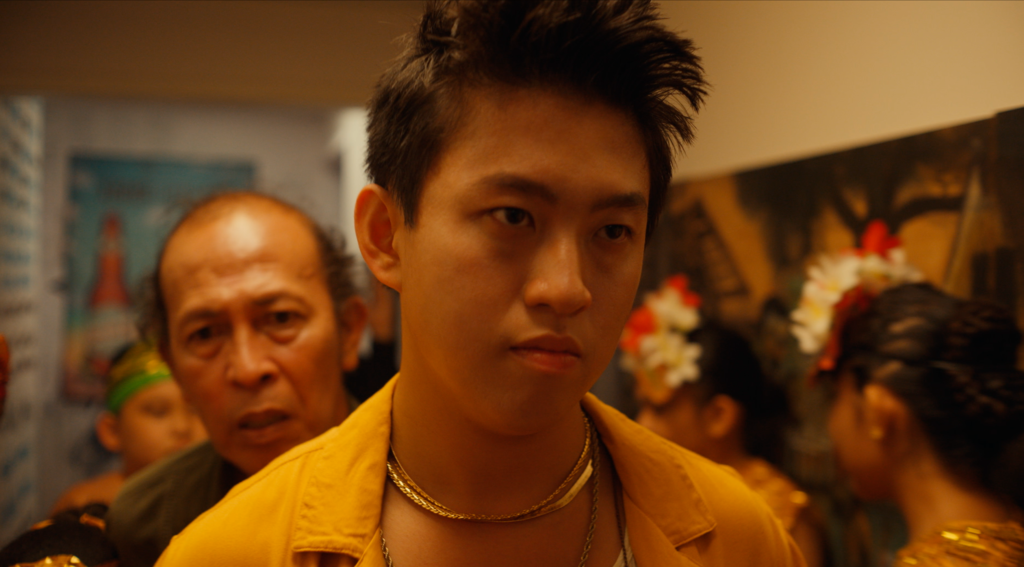
Rating:
There’s a strong and touching father/son drama about grieving a shared loss and naturally growing apart inside of JAMOJAYA, but Justin Chon inserts awkward dream sequences and escalates his story into supremely ridiculous melodrama to the point that it loses its emotional impact. Yayu A.W. Unru is wonderful as the father until his character becomes a parody. It’s such a shame because I was feeling very much on the film’s wavelength at first and if it had just stayed a little more traditional and not tried to get artistically fancy, it could have been offered something special. (Screened in January 2023 during Sundance Film Festival)
Showtimes: May 14 (SIFF Cinema Egyptian), May 18 (SIFF Cinema Egyptian)
THE GRAB (dir. Gabriela Cowperthwaite)

Rating:
An enraging, wild investigative journalism documentary that shows how land grabs should give us cause to worry about food and water security globally. So that’s awesome! But not really – when private investors and countries are secretly buying up (and stealing) land around the world to control supply and using mercenaries to do so at times, it’s actually really depressing and scary for future generations.
We should never under-appreciate the risk people like Nathan Halverson and his team put themselves in to expose truth to the public. This begins with someone asking a single question and then following the trail of information to bigger and bigger mind-blowing discoveries. It feels extremely authentic and sometimes even plays like a thriller where you truly are worried for the journalists at work. Gets a bit repetitive at one point when the “wow” reveals stop coming, but that’s the biggest complaint I’ve got and it doesn’t lessen the importance of this one bit.
Showtimes: May 19 (Shoreline Community College), May 20 (AMC Pacific Place)
THEATER CAMP (dir. Molly Gordon and Nick Lieberman)
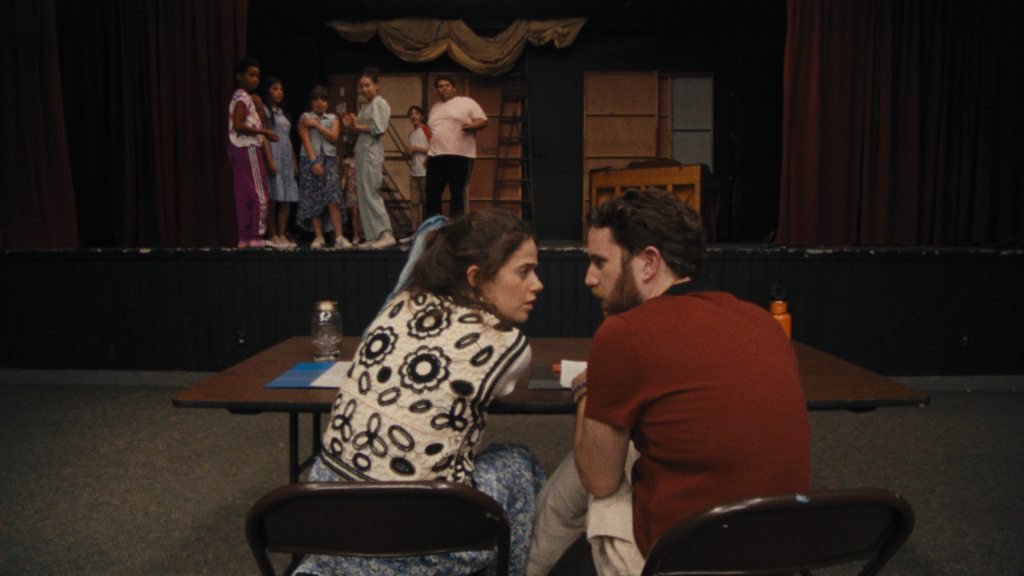
Rating:
Experiencing something made by people in a specific industry, with so much joy for its subject matter, especially when it is something you share, is wonderful. The film is a mockumentary love letter to theater performers and musical fans with almost pitch-perfect comedy and plenty of famous songs to briefly sing-along with. The story kicks off when beloved low-cost theater camp owner Joan (Amy Sedaris) falls into a coma during a rousing performance of “Honestly Sincere” from BYE BYE BIRDIE, and I was instantly hooked. From there, her very much *not* a theater kid son Troy (Jimmy Tatro) must run the camp over the summer and stave off a hostile takeover from a neighboring rich kids’ camp while Amos (Ben Platt) and Rebecca-Diane (Molly Gordon) write and compose a musical to teach the diverse group of talented kids. The pacing is breezy and it touches on (a.k.a. makes fun of) most elements of production and the array of personality types you typically find among artists. It’s also an easy Best Ensemble contender with Molly Gordon’s hilariously touching performance being a standout and Noah Galvin absolutely knocking my socks off. The finale performance is INCREDIBLE and had me happy-crying throughout. As rewatchable as a film can be, I’ve seen it three times and am anxious to do so again. Musicals rule! (Screened in January 2023 during Sundance Film Festival)
Showtimes: May 20 (SIFF Cinema Uptown)
I LIKE MOVIES (dir. Chandler Levack)
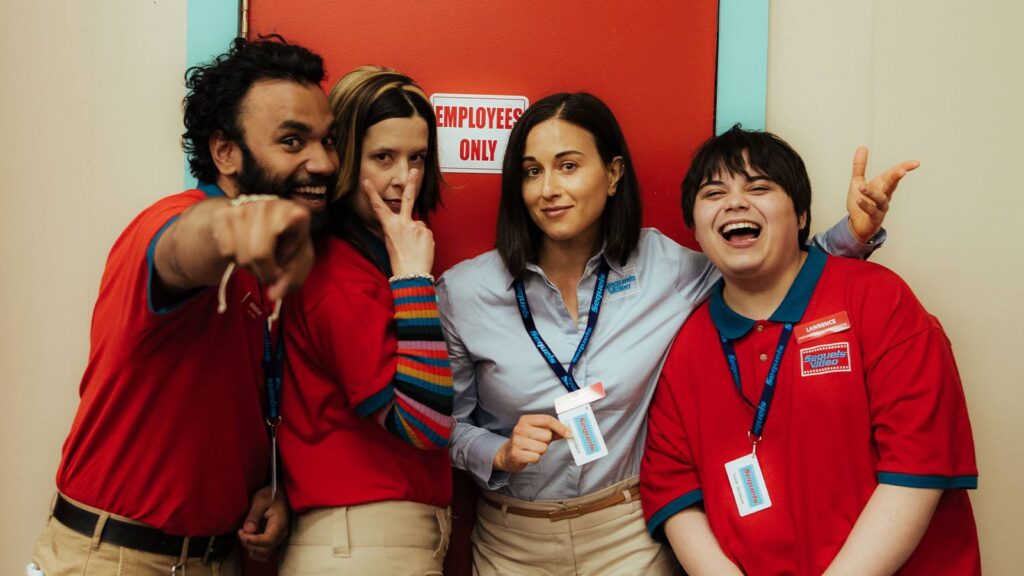
Rating:
<i>“It moved me, emotionally. Which I think is the highest compliment you can give to any filmmaker.”</i>
Director/Writer Chandler Levack’s debut feature film is a nostalgic blast to the past for nerdy cinephiles who grew up in the late 90s/early 00s. Following PTA super-fan and wannabe filmmaker Lawrence, we watch a boy struggle with maturation, having responsibility, and handling rejection, all while he lives out one dream of working in a local video store and chases another of attending NYU film school. The era details are pitch-perfect from the music references to lunch at Subway to obsession with SNL and more. Lawrence isn’t always a likable character, but like any good coming-of-age story the joy is in watching a young person go through this critical process of change that we can all relate to. An aces cast working with a wonderfully witty and touching script delivers Levack’s outpouring of passion for the time period and cinema. For those that love movies, I LIKE MOVIES is for you.
Showtimes: May 21 (SIFF Cinema Egyptian) – Closing Night Film
 Aaron White is a Seattle-based film critic and co-creator/co-host of the Feelin’ Film Podcast. He is also a member of the Seattle Film Critics Society. He reviews with a focus on the emotional experience he has with a film. Follow him on Facebook and Twitter to be notified when new content is posted.
Aaron White is a Seattle-based film critic and co-creator/co-host of the Feelin’ Film Podcast. He is also a member of the Seattle Film Critics Society. He reviews with a focus on the emotional experience he has with a film. Follow him on Facebook and Twitter to be notified when new content is posted.


